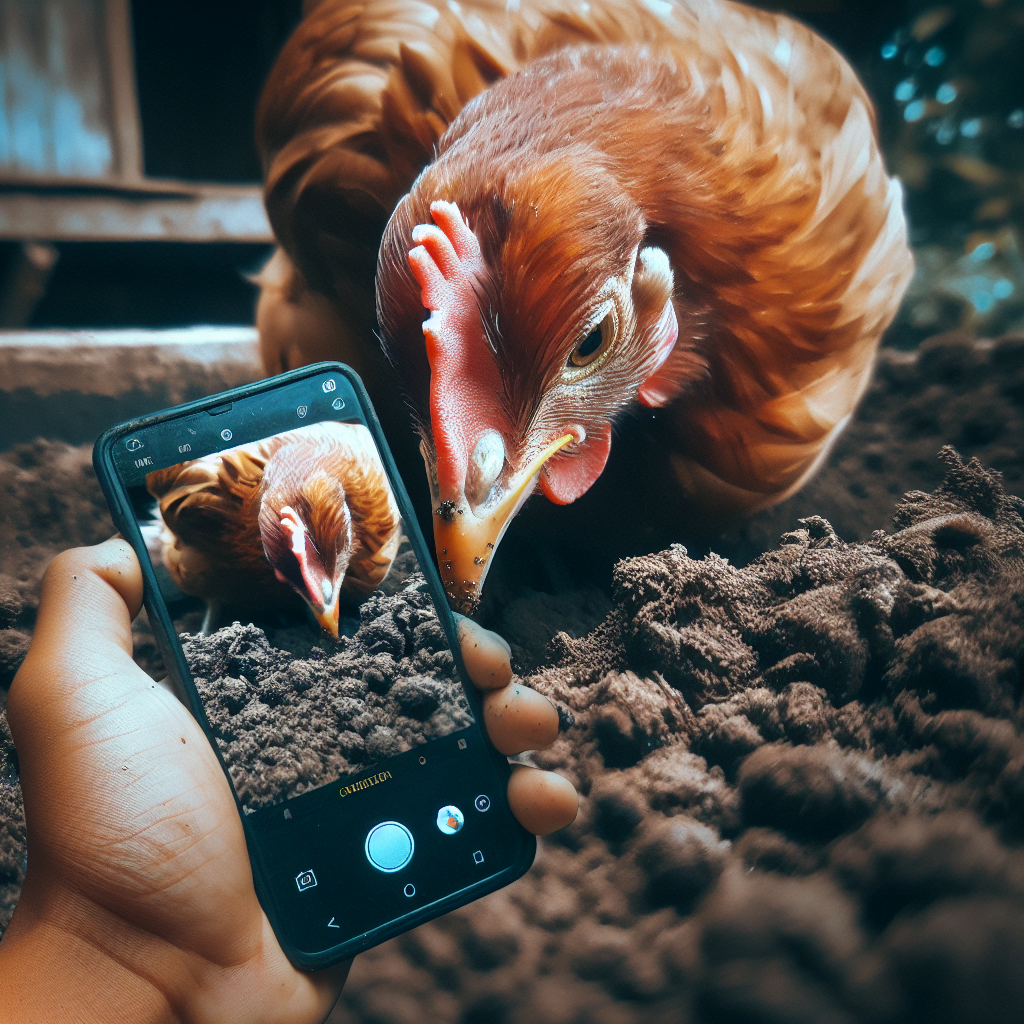Imagine a world where chickens are bred and modified in ways that enhance their production capabilities, but raise ethical concerns. In this thought-provoking article, we explore the multifaceted issue of breeding practices and genetic modifications in chickens. As you journey through the complexities of this subject, you’ll discover the potential ethical implications that arise from these practices. From questions about animal welfare to the impacts on biodiversity and human health, this article invites you to ponder the ethical considerations surrounding the ways in which we breed and modify chickens.
The Importance of Breeding Practices
Breeding practices in chickens play a crucial role in shaping the characteristics and traits of these birds. Through selective breeding and genetic modifications, breeders aim to enhance certain desired traits in chickens such as size, egg production, or disease resistance. However, it is important to recognize that these practices can have significant implications on chicken welfare, the environment, human health, and ethical considerations. In this article, we will explore the various aspects related to breeding practices and genetic modifications in chickens, and the different perspectives surrounding them.
Overview of Genetic Modifications in Chickens
Genetic modifications in chickens involve altering their genetic makeup to introduce specific traits or improve certain characteristics. This can be done through processes like selective breeding, genetic engineering, or the use of biotechnological tools. These modifications can range from simple manipulation of genes to more complex changes, such as introducing genes from other species or even creating entirely new traits. The purpose of these genetic modifications is often to increase productivity, improve disease resistance, or enhance the quality of poultry products.
The Impact on Chicken Welfare
Selective Breeding and Health Issues
Selective breeding has been extensively used in chicken farming to develop breeds with desirable traits. However, this practice has led to health issues in some cases. Breeding for rapid growth and larger muscles, for example, has resulted in chickens that often suffer from skeletal disorders, joint problems, and heart conditions. These health issues are a direct consequence of breeding for specific traits without considering the long-term impact on the birds’ well-being.
Physical Consequences of Genetic Modifications
Genetic modifications can also have physical consequences for chickens. For instance, the introduction of genes to enhance growth can result in disproportionate body development, causing birds to struggle with mobility and balance. Such modifications can pose challenges for chickens in their day-to-day activities, leading to discomfort and reduced quality of life.
Behavioral Changes in Genetically Modified Chickens
In addition to physical consequences, genetic modifications can also influence the behavior of chickens. Certain modifications aimed at increasing productivity may result in behaviors such as increased aggression, decreased maternal instincts, or even reduced ability to forage naturally. These behavioral changes can negatively impact the welfare of genetically modified chickens and hinder their ability to express natural behaviors.
Environmental Concerns
Increased Demand for Resources
As chicken breeding practices aim to enhance productivity, they often lead to an increased demand for resources. Chickens genetically modified for rapid growth require more feed, which can lead to greater resource consumption in terms of land, water, and energy. The intensified demand for resources can put a strain on agricultural ecosystems and contribute to environmental degradation.
Potential Effects on Biodiversity
The widespread adoption of specific breeds resulting from breeding practices and genetic modifications can also have an impact on biodiversity. As certain breeds become dominant, there is a risk of losing genetic diversity within chicken populations. This loss of genetic diversity can weaken their ability to adapt to changing environmental conditions and increase their vulnerability to diseases.
Ecological Balance and Genetic Diversity
Maintaining a balanced and diverse ecosystem is crucial for the overall health of our planet. Chickens, as a part of agricultural ecosystems, have a role to play in maintaining this balance. However, breeding practices that prioritize specific traits can disrupt this balance by favoring certain breeds over others. This disruption can have cascading effects on other species within the ecosystem, ultimately impacting the overall ecological balance.
Human Health Implications
Antibiotic Resistance and Disease Transmission
Genetic modifications in chickens can have implications for human health. The misuse and overuse of antibiotics in chicken farming to prevent or treat diseases can contribute to the emergence of antibiotic-resistant bacteria. This poses a significant public health concern as these antibiotic-resistant bacteria can be transmitted to humans through direct contact, consumption of contaminated products, or exposure to contaminated environments.
Impact of Genetically Modified Chicken Consumption
Consuming genetically modified chickens can also have implications for human health. While genetically modified chickens are deemed safe for consumption, there is ongoing debate about the potential long-term effects of consuming products from genetically modified animals. Studies on the impact of genetically modified foods on human health are still limited, and it is essential to continue monitoring and assessing any potential risks associated with consuming genetically modified chicken products.
Allergenicity and Nutritional Concerns
Genetic modifications can alter the composition of proteins in chickens, potentially leading to allergenicity concerns. The introduction of new proteins or modifications to existing proteins can trigger allergic reactions in susceptible individuals. Additionally, there is a need to assess the nutritional quality of genetically modified chicken products to ensure that they meet the necessary dietary requirements and do not pose any nutritional deficiencies or imbalances.
Ethical Considerations
Animal Rights and Welfare
Breeding practices and genetic modifications raise ethical considerations regarding animal rights and welfare. The intense selection for specific traits, such as fast growth or high egg production, can result in chickens experiencing physical discomfort, pain, or suffering. Ethical concerns arise when the pursuit of these desired traits compromises the overall well-being and quality of life of these birds.
Balancing Human Interests and Animal Suffering
Finding a balance between human interests in terms of productivity, profitability, and food security, and minimizing animal suffering is a key ethical challenge. Breeding practices and genetic modifications should strive to prioritize animal welfare and ensure that chickens are not subjected to unnecessary harm or compromised living conditions in the pursuit of human interests.
Debates on Genetic Manipulation and Designer Chickens
The debate surrounding breeding practices and genetic modifications extends to the question of genetic manipulation and the creation of “designer chickens.” While some argue that genetic manipulation can be a tool for addressing challenges in poultry production, others express concerns over the ethical implications of altering the genetic makeup of animals without fully understanding the consequences of these modifications.
Regulatory Framework and Industry Practices
Existing Regulations for Breeding and Genetic Modifications
Regulatory frameworks govern breeding practices and genetic modifications in chickens in different countries. These regulations aim to ensure the safety of animals, humans, and the environment. However, the level of regulation and enforcement can vary, and there is a need for comprehensive and up-to-date regulations that address the potential risks associated with breeding practices and genetic modifications.
Transparency and Labeling of Modified Chicken Products
Transparency and clear labeling of genetically modified chicken products are important for consumers to make informed choices. Regulations should require accurate and easily understandable labeling that indicates whether a product comes from genetically modified chickens. This transparency empowers consumers to support the production practices that align with their values and beliefs.
Responsibility of Chicken Producers and Suppliers
Chicken producers and suppliers have a responsibility to uphold ethical standards and ensure the welfare of the animals in their care. This includes implementing best practices for breeding and genetic modifications while considering the long-term impacts on the well-being of the chickens. By prioritizing ethical considerations, producers and suppliers can contribute to a more sustainable and responsible chicken farming industry.
Consumer Awareness and Choices
Educating the Public about Breeding Practices
Raising awareness among the public about the breeding practices and genetic modifications in chickens is crucial. Education initiatives can help consumers understand the potential impact of these practices on chicken welfare, the environment, and human health. By promoting awareness, consumers can make more conscious choices that support sustainable and ethical production practices.
Labeling and Certification for Ethical and Non-Modified Chickens
Labeling and certification systems can aid consumers in identifying and choosing ethical and non-genetically modified chicken products. These systems can provide assurance that chickens were raised under certain standards, such as free-range or organic farming methods, and without genetic modifications. Clear labeling and reliable certifications enable consumers to align their purchasing decisions with their values.
Consumer Demand for Sustainable and Ethical Chicken Production
Consumer demand has the power to drive change in the chicken farming industry. As more consumers become aware of the ethical implications of breeding practices and genetic modifications, the demand for sustainable and ethical chicken production increases. This demand can incentivize producers and suppliers to adopt more responsible practices and invest in alternative methods that prioritize animal welfare and environmental sustainability.
Alternatives and Solutions
Promoting Organic and Free-Range Chicken Farming
One alternative to breeding practices and genetic modifications is promoting organic and free-range chicken farming. These methods prioritize animal welfare and offer chickens the opportunity to engage in more natural behaviors. By choosing organic or free-range chicken products, consumers can support farming practices that align with their concern for animal welfare.
Supporting Sustainable Agriculture Practices
Emphasizing sustainable agriculture practices can reduce the environmental impact of chicken farming. Implementing practices such as agroforestry, regenerative agriculture, and integrated pest management can contribute to healthier ecosystems and reduced resource demand. Supporting and investing in such practices can enable a more sustainable and responsible chicken farming industry.
Encouraging Research on Alternative Protein Sources
Exploring and investing in research on alternative protein sources can help reduce the reliance and pressure on chickens for meat production. Innovations in cellular agriculture, plant-based proteins, and insect farming offer potential alternatives to traditional animal farming methods. By diversifying protein sources, we can reduce the need for intensive breeding practices and genetic modifications in chickens.
Collaboration and Multidisciplinary Approach
Bringing Together Ethicists, Scientists, and Animal Welfare Experts
Addressing the complex issues surrounding breeding practices and genetic modifications in chickens requires collaboration among various stakeholders. Bringing together ethicists, scientists, and animal welfare experts can facilitate discussions and decision-making processes that consider the ethical, scientific, and practical aspects of these practices. By working together, holistic and informed solutions can be developed.
Policy-making with Stakeholder Involvement
Policy-making should involve the active participation of stakeholders from different sectors, including government entities, farmers, animal welfare organizations, consumers, and researchers. By including diverse perspectives, policy decisions can be more balanced, informed, and reflective of the needs and concerns of all relevant stakeholders. This collaborative approach can contribute to effective regulations and industry standards.
International Cooperation and Standardization
Given the global nature of the chicken farming industry, international cooperation and standardization are crucial. By fostering collaboration and sharing best practices at the international level, countries can align their regulations, ethical standards, and breeding practices. This cooperation can help ensure a level playing field, prevent the exploitation of weak regulatory systems, and promote responsible breeding practices and genetic modifications globally.
Conclusion
Breeding practices and genetic modifications in chickens have far-reaching implications, touching upon the welfare of the chickens themselves, environmental sustainability, human health, and ethical considerations. It is crucial to approach these issues from a comprehensive and multidisciplinary perspective, considering the different aspects at play and integrating the insights of ethicians, scientists, policymakers, and other stakeholders. By promoting transparency, education, and responsible practices, we can work towards a chicken farming industry that prioritizes animal welfare, environmental sustainability, and human health while addressing the ethical implications of breeding practices and genetic modifications. Ultimately, it is through collective efforts and collaboration that we can strive for a more sustainable and ethical future in the chicken farming industry.




